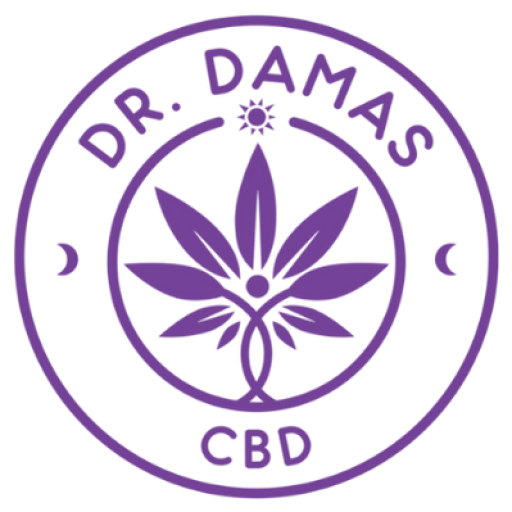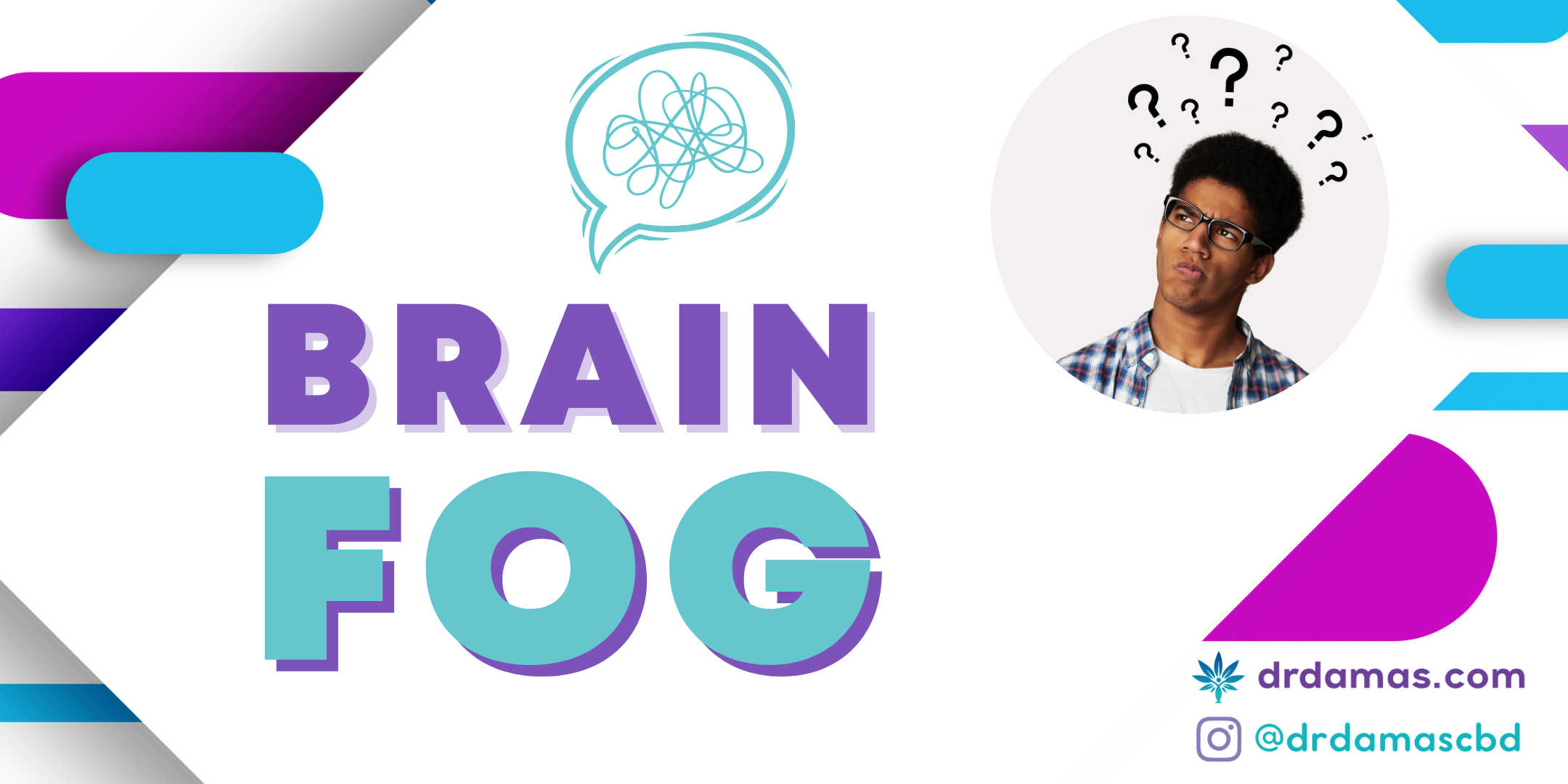Brain Fog? I think I’ve heard of that, but where…🤔
I often mention on the air that I love when people call in or contact us with their questions because it helps guide us in finding solutions. This subject is another wonderful example of that. Someone recently called the office and asked about “brain fog and cbd” and I said to our office manager Micheal, “that's crazy- I’ve been wanting to do a show on that forever, and I just couldn't remember” 🙃
Have you ever found yourself like that? Kind of lost in a mental haze, struggling to think clearly or remember simple details? This phenomenon, commonly known as brain fog, isn't a standalone condition but rather a strange symptom of various underlying issues. In this post we’ll discuss the mysterious “brain fog” we all seem to suffer from at times and some common conditions it may be connected to like long COVID, brain injuries, "mom brain", insomnia, and aging. These aren't all the conditions that may cause symptoms of forgetfulness, confusion and decreased mental acuity we attribute to brain fog- there are many, many more. For this post, we’ll only address those, and I'm also going to exercise your brain a little by asking you questions as we go along. Use it or lose it 🙂
Long COVID and Brain Fog: Leave Vaccines out of this!
Long COVID brings a lingering mist of cognitive challenges, often including brain fog. Studies point to prolonged inflammation and psychological stress as key culprits. Did you know that certain demographic groups, such as transgender individuals and women, particularly those of Black and Hispanic ethnicity, report higher incidences of long COVID brain fog? What underlying factors do you think contribute to this increased susceptibility?
Treatments and Cannabis Connection
While conventional treatments focus on symptom management, have you considered the potential of mindfulness and cannabis-based therapies? Imagine the possibilities if CBD could reduce inflammation or THC could restore mental clarity. But how effective are these approaches truly?
Pearls
1. About 34% of COVID survivors experience cognitive deficits. Is this just the tip of the iceberg in understanding post-viral cognitive impacts?
2. Women are more likely to suffer from long COVID symptoms. What role do hormonal or societal factors play in this gender disparity?
Brain Injuries, Concussions, and CTE: Invisible Scars
Brain injuries, from mild concussions to severe CTE, disrupt our neural pathways, leading to foggy thinking. Predominantly affecting male athletes and military veterans, these conditions raise questions about the link between certain professions or lifestyles and cognitive health. Why are these groups more vulnerable, and what can be done to protect them?
Treatments and Cannabis Connection
Recovery often involves a mix of rehabilitation and cognitive therapy. Could the neuroprotective properties of CBD offer a new pathway to healing? And might THC play a role in alleviating related pain and discomfort?
Pearls
1. Military veterans report a significant incidence of cognitive issues post-injury. Is society adequately addressing their needs?
2. The high risk of CTE among athletes in contact sports highlights the need for improved safety measures. But are these changes happening fast enough?
"Mom Brain" and Brain Fog: Where are Those Keys???
The phenomenon of "mom brain" is kind of a puzzle. For a long time women have complained of post birth cognitive changes but were dismissed (imagine that 😒) While this phenomenon affects mothers across all racial and ethnic backgrounds, stress-related factors seem to be more pronounced in minority women. Could this be linked to broader societal pressures and a lack of supportive networks? Is sleep deprivation a potential cause?
Treatments and Cannabis Connection
For new mothers seeking relief, the balance between effective treatment and safety is crucial. Herbal supplements might offer a natural solution, but what about cannabis products like CBD? Are they a safe and effective option for stress management in postpartum women?
Pearls
1. The prevalence of forgetfulness in up to 75% of new mothers hints at a significant cognitive impact of motherhood. Is this a temporary phase, or does it indicate a deeper neurological change?
2. The heightened rate of postpartum stress in minority women underscores the importance of tailored support and care. How can healthcare systems better address these disparities?
Insomnia and Brain Fog: Sleepless Nights & Foggy Mornings
Insomnia, a strait up thief of restful nights, often leaves a foggy mind in its wake. Predominantly affecting women and older adults, it raises questions about the intricate links between sleep, gender, and age. Why are these groups more prone to insomnia, and how does it affect their cognitive functioning?
Treatments and Cannabis Connection
Addressing insomnia involves a blend of good sleep hygiene and, in some cases, cognitive behavioral therapy. But what about the potential of cannabis in this equation? Could THC's sedative properties or CBD's anxiety-reducing effects offer a new frontier in sleep-related brain fog treatment?
Pearls
1. With 30% of adults experiencing insomnia symptoms, the impact on mental clarity is a widespread concern. How can we better address sleep health in our fast-paced world?
2. The fact that women are more likely to suffer from insomnia invites a closer look at gender-specific sleep patterns and needs. What unique challenges do women face in achieving restorative sleep?
Brain Fog and Aging: Father Time Needs to Chill
Age-related cognitive decline often manifests as brain fog, affecting both genders but slightly more prevalent among women. What changes in brain structure and function contribute to this decline, and how can we mitigate its impact?
Treatments and Cannabis Connection
Tackling age-related brain fog involves mental exercises, social engagement, and a balanced diet, and perhaps even certain supplements like Coenzyme Q10 and Ginkgo biloba. Could these interventions help maintain cognitive sharpness in our later years, and what role might cannabis, particularly CBD, play in this context?
Pearls
1. With 1 in 9 people aged 65 and older diagnosed with Alzheimer's dementia, the challenge of managing age-related cognitive decline is more pressing than ever. What strategies can be employed to support cognitive health in our aging population?
2. The higher risk of cognitive decline in women compared to men suggests the need for gender-specific approaches in cognitive health research and care. What unique factors contribute to this increased risk, and how can they be addressed?
Yes yeah
Wrapping It All Up
Hopefully after reading all this, you’ll be motivated to do some research and reading on your own. This one time I’m not giving out all the answers to the test beforehand 😉
But I will say this, what you’re feeling is not all in your head (literally and figuratively). There are a number of medical reasons why you may be finding it hard to concentrate, or remember things. The first thing you should do is to have yourself examined by your healthcare provider to check for any treatable or manageable conditions. You should also look for ways to improve your overall physical and mental health as both contribute to cognitive performance.
It’s important you get your information from reputable sources from reputable sources and only buy supplements from trusted suppliers. If you’re interested in CBD, be sure to check out our store and contact us with any questions- we’re happy to help. But most of all, make sure you exercise your brain: read, do puzzles, decrease tv/phone/ screen time and exercise regularly!















